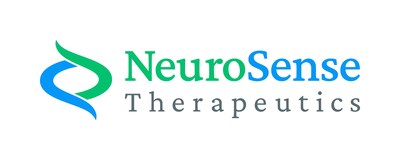NeuroSense Reports Additional Positive Results from its ALS Phase 2b PARADIGM Trial
- Positive data from PARADIGM trial for PrimeC in ALS treatment
- Significant effects on quality of life, survival, and disease progression
- 53% reduction in ALS complications or death risk
- Statistically significant results in ALSFRS-R scale
- Neurofilament results expected in Q1, biomarkers in the first half of 2024
- None.
Insights
The recent findings from NeuroSense's Phase 2b PARADIGM trial present a significant advancement in the treatment of amyotrophic lateral sclerosis (ALS). The drug candidate, PrimeC, has shown a clinically meaningful effect on both quality of life and complication-free survival for ALS patients, which is a key concern for stakeholders given the debilitating nature of the disease. The improvement in complication-free survival, particularly the reduction in the risk of disease complications or death by up to 53%, is a substantial outcome.
From a medical research perspective, the positive data regarding PrimeC's impact on the ALS Functional Rating Scale-Revised (ALSFRS-R) and Slow Vital Capacity (SVC) suggest that the drug has the potential to alter the disease's trajectory. The ALSFRS-R is a critical measure of physical function in ALS patients and improvements in this metric can correspond to a slowed progression of the disease. The SVC measure, while not showing statistical significance, still indicates a possible trend towards respiratory function preservation. These results could lead to further research and development, potentially offering hope for better management of ALS symptoms and progression.
The announcement by NeuroSense Therapeutics regarding their lead drug candidate, PrimeC, is likely to generate investor interest and impact the company's stock valuation. The market often reacts positively to successful clinical trial outcomes, particularly when they show potential for a breakthrough in treating diseases with unmet medical needs such as ALS. The statistically significant results in the ALSFRS-R and the robust safety profile established could position NeuroSense favorably in the eyes of investors and partners.
However, it is important to note that the trial is still at the Phase 2b stage and while the results are promising, the path to regulatory approval and commercialization includes further clinical trials, regulatory scrutiny and potential market competition. Investors should consider the risks and timelines associated with drug development in biotechnology. Long-term implications for stakeholders will depend on the drug's efficacy in larger clinical trials, its safety profile upon broader application and its ability to secure regulatory approval and market access.
The economic implications of a successful ALS treatment extend beyond the direct financial impact on NeuroSense Therapeutics. The potential reduction in healthcare costs associated with prolonged complication-free survival and improved quality of life for ALS patients could have a positive effect on the healthcare economy. If PrimeC is able to delay the progression of ALS, this could reduce the burden on healthcare systems and caregivers, leading to a reallocation of resources and potentially lower insurance premiums for treatments.
Furthermore, the development of effective ALS treatments could spur job creation in the biotech sector and related industries. It could also lead to increased investment in research and development, fostering innovation and economic growth. The societal benefits of improving the lives of individuals with ALS are substantial, potentially translating into broader economic benefits through improved productivity and reduced disability.
- PrimeC demonstrated a clinically meaningful effect on quality of life and on complication free-survival for patients with ALS
- Standard ALS Measure ALSFRS-R already demonstrated a statistically significant effect of PrimeC on slowing down disease progression
- Further analysis of PARADIGM is on track with neurofilament results expected in Q1 and TDP-43 and ProstaglandinJ2 biomarkers expected in the first half of 2024

The PARADIGM trial's secondary clinical efficacy outcome measure endpoints included Quality of Life and Survival. Consistent with the previously reported results, PrimeC displayed a clinically meaningful effect on various aspects of patients' quality of life, including mental and physical health. Moreover, analyses pertaining to survival outcomes emphasized the implications of PrimeC intervention in mitigating disease progression and burden. PrimeC achieved an improvement in complication-free survival compared to placebo (in several methodologies, including MiToS and King's Advanced Stage-free Survival), reducing the risk of ALS disease complications or death by up to
"PrimeC's demonstrated positive effect on quality of life and survival, aligned with the already positive clinical outcome measures, in a relatively small Phase 2b clinical trial truly demonstrates its potential to deliver a meaningful benefit," stated Ferenc Tracik, M.D., NeuroSense's Chief Medical Officer. "From a clinical perspective, these parameters are crucial to neurologists, but more importantly to people living with ALS."
This news comes on the heels of the recent positive top-line results reported in December 2023 from the PARADIGM trial in 68 participants, which met its primary endpoint of safety and tolerability, establishing a robust safety profile of PrimeC. In addition, PrimeC demonstrated a statistically significant slowing of disease progression with a
"The positive impact of PrimeC on quality of life and complication-free survival, together with its demonstrated ability to meaningfully slow down disease progression, is of great value, as we see that we have the potential to profoundly affect patients' lives across the board. We are in great anticipation to soon report on the status of our collaboration on neurofilaments and how this may contribute to expediting the development of PrimeC," stated Alon Ben-Noon, NeuroSense's CEO.
About ALS
Amyotrophic lateral sclerosis ("ALS") is an incurable neurodegenerative disease that causes complete paralysis and death within 2-5 years from diagnosis. Every year, more than 5,000 patients are diagnosed with ALS in the
About PrimeC
PrimeC, NeuroSense's lead drug candidate, is a novel extended-release oral formulation composed of a unique fixed-dose combination of two FDA-approved drugs: ciprofloxacin and celecoxib. PrimeC is designed to synergistically target several key mechanisms of ALS that contribute to motor neuron degeneration, inflammation, iron accumulation and impaired ribonucleic acid ("RNA") regulation to potentially inhibit the progression of ALS. NeuroSense completed a Phase 2a clinical trial which met its safety and efficacy endpoints including reducing functional and respiratory deterioration and statistically significant changes in ALS-related biological markers indicating PrimeC's biological activity. PrimeC was granted Orphan Drug Designation by the
About PARADIGM
PARADIGM is a prospective, multinational, randomized, double-blind, placebo-controlled Phase 2b (NCT05357950) clinical trial of PrimeC in ALS. The trial included 68 participants living with ALS in
An analysis of the ITT top-line data from the 6-month double-blind segment of the trial showed clinically meaningful signs of efficacy with a
About ALS Complication-free and MiTos/King's Advanced Stage-free Survival Analyses
ALS Complication-free Survival is defined as time from randomization to death from any cause, or respiratory insufficiency (defined as tracheostomy or the use of non-invasive mechanical ventilation for over 22 hours per day for 10 or more consecutive days), or time to hospitalization due to ALS-related complications. MiToS Advanced Stage-free Survival or King's Advanced Stage-free Survival is defined as time from randomization to death from any cause or respiratory insufficiency similarly, however, also utilizes time to increase in MiToS stage or King's stage. MiToS Advanced Stage is based on functional ability (ALSFRS-R) stages from normal functionality to death, while King's stage is based on advancements in disease burden (clinical involvement, feeding, or respiratory failure).
About NeuroSense
NeuroSense Therapeutics, Ltd. is a clinical-stage biotechnology company focused on discovering and developing treatments for patients suffering from debilitating neurodegenerative diseases. NeuroSense believes that these diseases, which include amyotrophic lateral sclerosis (ALS), Alzheimer's disease and Parkinson's disease, among others, represent one of the most significant unmet medical needs of our time, with limited effective therapeutic options available for patients to date. Due to the complexity of neurodegenerative diseases and based on strong scientific research on a large panel of related biomarkers, NeuroSense's strategy is to develop combined therapies targeting multiple pathways associated with these diseases.
For additional information, we invite you to visit our website and follow us on LinkedIn and X.
Forward-Looking Statements
This press release contains "forward-looking statements" that are subject to substantial risks and uncertainties. All statements, other than statements of historical fact, contained in this press release are forward-looking statements. Forward-looking statements contained in this press release may be identified by the use of words such as "anticipate," "believe," "contemplate," "could," "estimate," "expect," "intend," "seek," "may," "might," "plan," "potential," "predict," "project," "target," "aim," "should," "will" "would," or the negative of these words or other similar expressions, although not all forward-looking statements contain these words. Forward-looking statements are based on NeuroSense Therapeutics' current expectations and are subject to inherent uncertainties, risks and assumptions that are difficult to predict and include statements regarding PrimeC as a potential treatment for people with ALS and the timing for release of neurofilament results and TDP-43 and ProstaglandinJ2 biomarker results. Further, certain forward-looking statements are based on assumptions as to future events that may not prove to be accurate. The future events and trends may not occur and actual results could differ materially and adversely from those anticipated or implied in the forward looking statements. These risks include a delay in the reporting of additional results from PARADIGM clinical trial, unexpected R&D costs or operating expenses, the timing of expected regulatory and business milestones, risks associated with meeting with the FDA to determine the best path forward following the results from PARADIGM clinical trial, including a delay in any such meeting, a delay in patient enrollment for a Phase 2 trial for Alzheimer's disease or its planned Phase 3 pivotal ALS trial of PrimeC; the potential for PrimeC to safely and effectively target ALS; preclinical and clinical data for PrimeC; the uncertainty regarding outcomes and the timing of current and future clinical trials; timing for reporting data; the development and commercial potential of any product candidates of the company; and other risks and uncertainties set forth in NeuroSense's filings with the Securities and Exchange Commission (SEC). You should not rely on these statements as representing our views in the future. More information about the risks and uncertainties affecting the Company is contained under the heading "Risk Factors" in the Annual Report on Form 20-F filed with the Securities and Exchange Commission on March 22, 2023. Forward-looking statements contained in this announcement are made as of this date, and NeuroSense Therapeutics Ltd. undertakes no duty to update such information except as required under applicable law.
Logo - https://mma.prnewswire.com/media/1707291/NeuroSense_Therapeutics_Logo.jpg
![]() View original content:https://www.prnewswire.com/news-releases/neurosense-reports-additional-positive-results-from-its-als-phase-2b-paradigm-trial-302067299.html
View original content:https://www.prnewswire.com/news-releases/neurosense-reports-additional-positive-results-from-its-als-phase-2b-paradigm-trial-302067299.html
SOURCE NeuroSense







